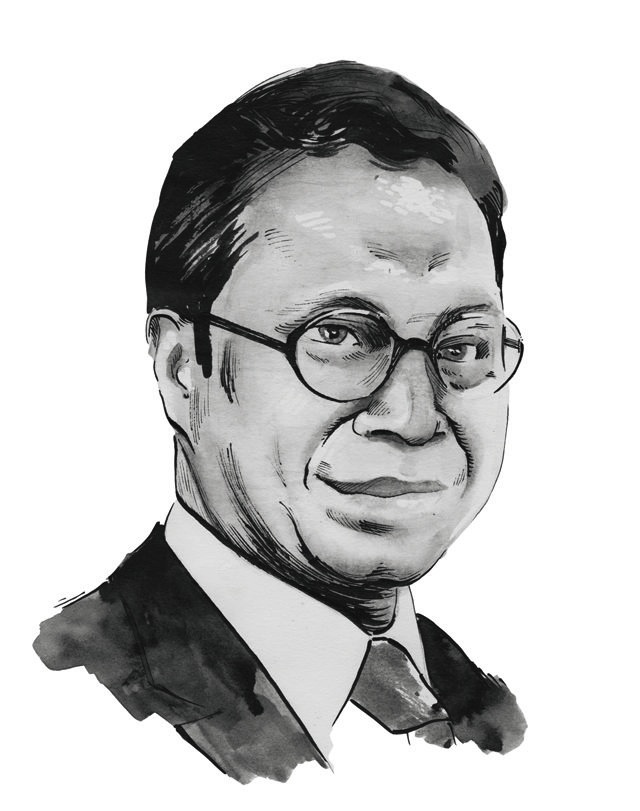His name tends to fly under the radar on the regional political scene, but career diplomat Roberto Soares may be the final link in the tiny nation’s Asean membership bid
By Sacha Passi
In August of 2012 Roberto Soares, a nationalist, activist and survivor of the Santa Cruz massacre, took his position as the Secretary of State for Asean Affairs – and accepted the challenge of securing East Timor’s place as the 11th member of Asean in 2013.

Roberto Soares – A father of four, Soares is an accomplished scholar and career diplomat. Learned in the areas of philosophy, religion and international security, his highest qualification was obtained in 2006 when he gained a Masters in Business Administration from University of California, Berkeley in the United States. Soares is a pioneer of East Timor’s Foreign Diplomatic Services and has served the Ministry of Foreign Affairs since it was first established in 2000
Even though the South China Sea debacle overshadowed East Timor’s accession bid in 2012, Asean members have remained staunchly divided on the matter of membership over the past year.
In one corner, Indonesia, Malaysia and Thailand have openly endorsed East Timor’s entry to Asean; in the other corner, Singapore, Laos and Cambodia vetoed the move, stating that East Timor, Southeast Asia’s youngest and poorest nation, is simply not ready for membership.
Having Indonesia as an ally will no doubt work in Soares’ favour, but East Timor observers suggest that this show of support from the archipelagic nation that brutally occupied East Timor for a quarter of a century is simply clever diplomacy. Damien Kingsbury, a professor of Political Development and Conflict Resolution at Deakin University in Australia suggests a reason for the unlikely pairing may lie in the fact that “Indonesia has a lot to make up for if it is [to stop] war crimes trials [from] proceeding.” The Indonesian government has systematically refused to cooperate with the United Nations-led tribunal in East Timor, and refuses to extradite wanted war criminals.
Acceptance into the bloc is needed to strengthen East Timor’s future security. “Membership would enhance Timor-Leste’s status as a regional state and give it a voice at the table on regional issues,” Kingsbury said.
Well versed in diplomatic rhetoric, Soares must immediately assuage the fears of opposing nations that allowing East Timor to join Asean will not hinder the formation of the Asean Economic Community (AEC), currently slated for the end of 2015.
While East Timor has oil and gas reserves worth an estimated $30 billion and is a democracy – strong assets by Asean standards – its limited industrial capacity to capitalise on its natural bounty, chronically impoverished population and limited political presence in the region will require the work of more than one man to prove East Timor’s viability as a valuable player in Asean.
At the age of 38, Soares’ previous political presence in the region should hold some sway in convincing opposing Asean members to vote in favour of East Timor’s membership into the bloc. He speaks four languages, including English and Indonesian, and has worked closely with Singapore and Brunei as East Timor’s ambassador to both nations.
Dennis Shoesmith, an associate professor of political science and East Timor scholar at Charles Darwin University in Australia, said that the biggest concern about refusing East Timor’s bid is that Singapore and other opposing members are looking at the young nation’s position too narrowly, failing to take into consideration China’s increasing interest in the country. Furthermore, Asean observers have suggested that the best counterbalance to China’s growing influence in the country is to approve East Timor’s membership.
“If Timor-Leste is outside Asean it becomes a blind spot in the middle of the association which could develop as a problem for a whole range of things which Asean tries to collectively control,” Shoesmith added.
East Timor’s Asean membership is more a question of ‘when’ rather than ‘if’, but time is of the essence for the young nation if it is to have the support it needs to navigate the imminent tussle over its natural resources. The challenge for Soares in the coming months is to ensure that East Timor’s membership is simply a case of ‘sooner’ rather than ‘later’.
Related Articles
“Sibling Rivalry” – After five years sitting on the sidelines of Thai politics, Yaowapa Wongsawat could soon find herself appointed Thailand’s next prime minister
